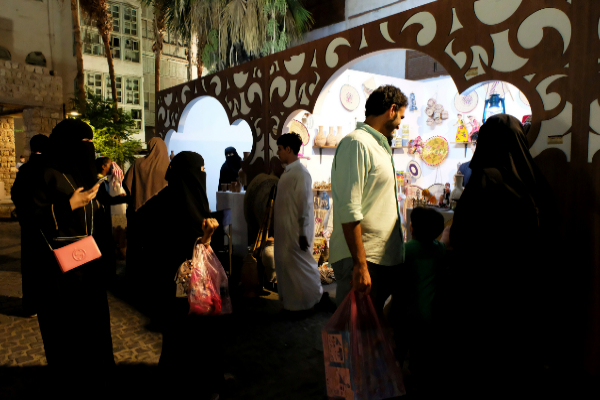- The madness of the Supercup. From Stoichkov's foot to Mourinho's finger
As much as one looked at that screen in search of the air link that should take the journalist from Cairo to Jeddah, no sign. There was no way to find the flight to the second largest city in Saudi Arabia.
« As-salamu alaykum ». Who introduces himself is Saïd, an industrial technical engineer born in Nador but residing in Frankfurt. About to turn 73, he embarks on his fourth pilgrimage to Mecca. "Flights to Jeddah, which is the door to Mecca, and Medina, the other great holy city of Islam, do not appear because we have to go to a special room." An airport employee then indicates the path to a van, which will be the one that moves travelers to an appropriate terminal. With two rooms to pray. One for men, one for women. Religion encodes all reality from this point of the trip. Mecca and Medina, by the way, are places where access to non-Muslims is prohibited . It is not allowed to approach less than 10 kilometers.
Saïd, who opens the backpack to offer sweets to the journalist, points out one of the televisions, where pilgrims are seen going around the Kaaba seven times, "the house of God." Before saying goodbye, being questioned about the role of women in Saudi Arabia, he says: "Things are changing . "
It refers to the reforms introduced by Mohamed bin Salman, crown prince of Saudi Arabia. One of the most important, that women can lead in the kingdom. Until June 2017 it was the only country in the world that prohibited it. One sharpens the view on the way from the shore of the Red Sea to the heart of Jeddah. But, at least on this first day, the journalist fails to see a single woman behind the wheel .
Relaxing the iron system of guardianship, whereby women depend on the permissions of men for countless daily activities, is another of the country's challenges.
Walking through the historical center of Jeddah, a World Heritage Site, however, also helps deny some mythology. Merchants sell dolls without problems. Taxi drivers receive the customer with commercial music. And during the salat , the five hours of prayer a day, and despite the fact that a good part of the stores close, there is no guess of the presence of the religious police that controls the total detention of the activity . In some places of the Al Mahmal shopping center, a person in charge is placed at the entrance to filter who enters and who does not until the conclusion of the prayer.
Banks, offices and some coffee shops or restaurants maintain differentiated tickets for men and women. This is the case in Albaik, dedicated to fast food. «It doesn't happen there! It's only for women, warns a walker ». This is also indicated by a poster. A screen separates the women, all of them piled up in a single queue, from the ranks of the men , who can order their food at the remaining four counters.
The hotels of Jeddah do not offer too much truce. For example, Citadines Al Salamah sets specific schedules for women to access their small gym. Two hours in the morning, another two in the afternoon . The men have the room the rest of the time, 14 hours.
There are hardly any women who attend shops. Not even in women's clothing stores, attended by men. It is not usual to find testers for them . It can also be problematic for a woman to try on a bracelet or bracelet. The merchant cannot touch his hands.
According to the criteria of The Trust Project
Know more- sports
- football
- Spain Supercup
- Real Madrid
- Atlético de Madrid
- FC Barcelona
ChampionsChampions League: Real Madrid-City, Atlético-Liverpool and Barcelona-Naples, in the round of 16
Champions League Champions League: Madrid and Atlético sigh for Leipzig; Barcelona and Valencia by Atalanta and Lyon
ChampionsThere are the bombs for the Champions draw: possible rivals of the Spanish in the round of 16

